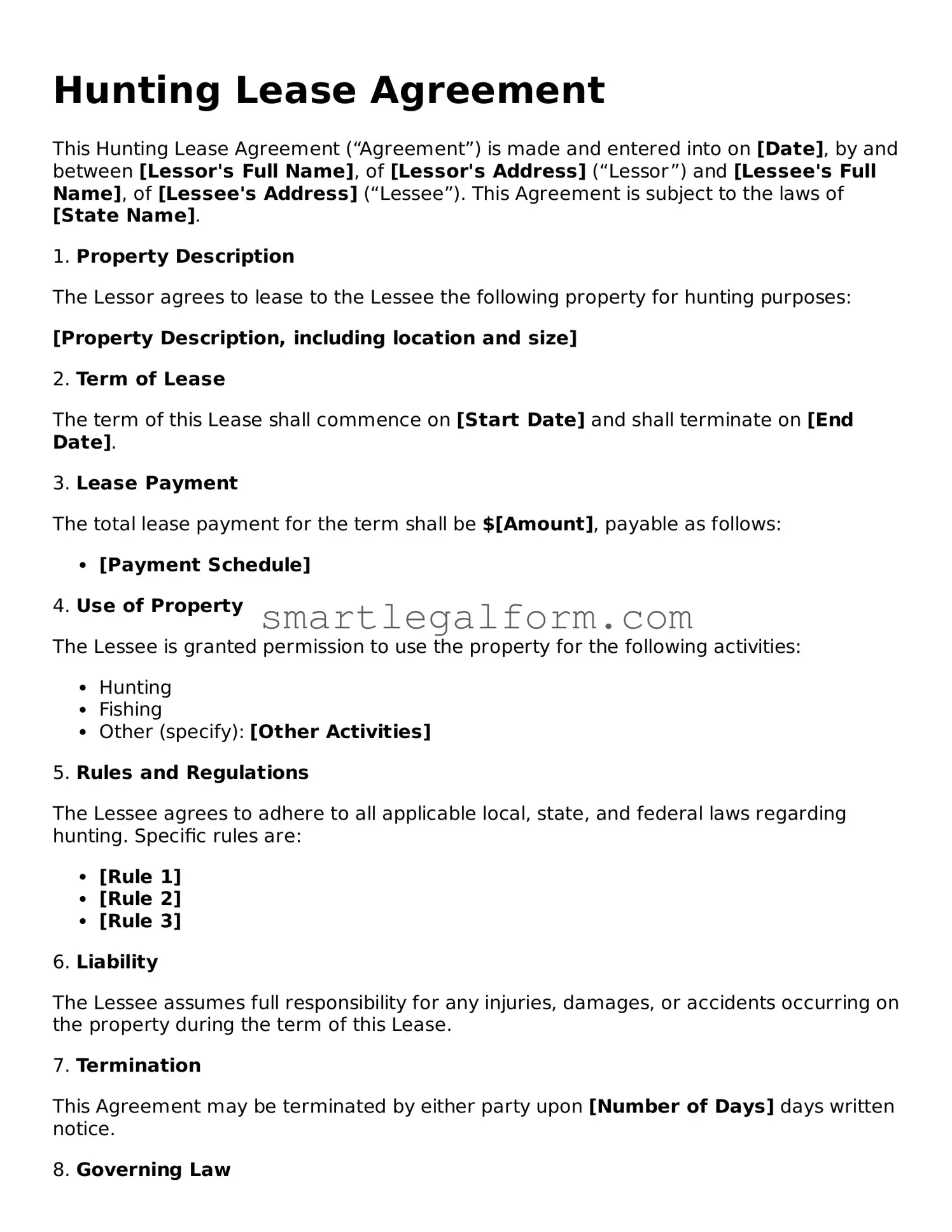Hunting Lease Agreement
This Hunting Lease Agreement (“Agreement”) is made and entered into on [Date], by and between [Lessor's Full Name], of [Lessor's Address] (“Lessor”) and [Lessee's Full Name], of [Lessee's Address] (“Lessee”). This Agreement is subject to the laws of [State Name].
1. Property Description
The Lessor agrees to lease to the Lessee the following property for hunting purposes:
[Property Description, including location and size]
2. Term of Lease
The term of this Lease shall commence on [Start Date] and shall terminate on [End Date].
3. Lease Payment
The total lease payment for the term shall be $[Amount], payable as follows:
4. Use of Property
The Lessee is granted permission to use the property for the following activities:
- Hunting
- Fishing
- Other (specify): [Other Activities]
5. Rules and Regulations
The Lessee agrees to adhere to all applicable local, state, and federal laws regarding hunting. Specific rules are:
- [Rule 1]
- [Rule 2]
- [Rule 3]
6. Liability
The Lessee assumes full responsibility for any injuries, damages, or accidents occurring on the property during the term of this Lease.
7. Termination
This Agreement may be terminated by either party upon [Number of Days] days written notice.
8. Governing Law
This Agreement shall be governed by the laws of [State Name].
9. Signatures
Both parties agree to the terms outlined in this Hunting Lease Agreement. By signing below, each party acknowledges and agrees to uphold the terms of this Agreement.
Lessor's Signature: _______________________ Date: _______________
Lessee's Signature: _______________________ Date: _______________
